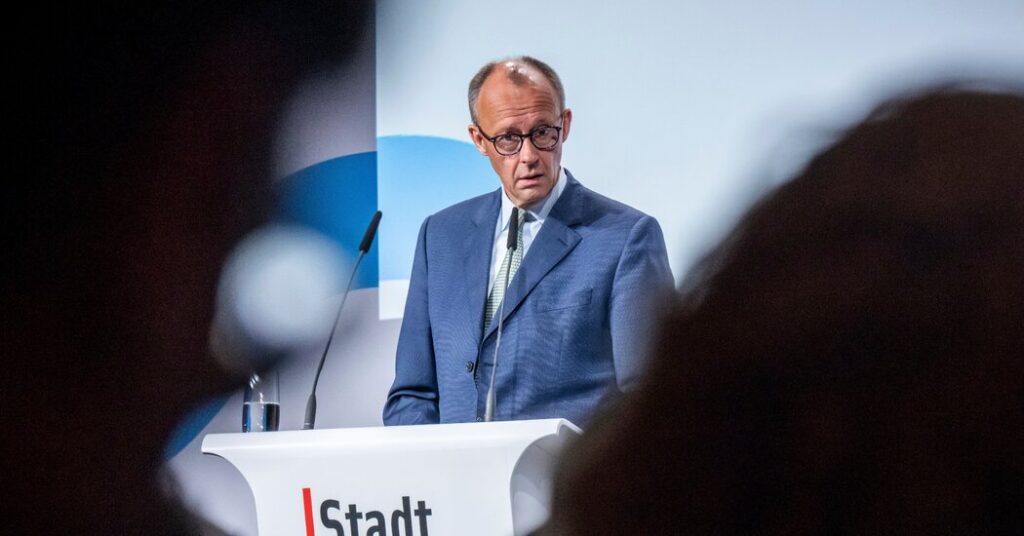Russia-Ukraine War Supported by The German chancellor had come to Washington hoping to persuade President Trump to play a more active role in defending Ukraine. By Jonathan SwanJim Tankersley and Zolan Kanno-Youngs Jonathan Swan and Zolan Kanno-Youngs reported from Washington, and Jim Tankersley from Berlin. German Chancellor Friedrich Merz had one main ask of President Trump during his Oval Office visit on Thursday: that the American president stand with Europe in pressuring Moscow to back down from attacks on Ukraine and push to end the three-year war. To which Mr. Trump replied: Maybe they need to fight a little longer. “Sometimes you see two young children fighting like crazy,” Mr. Trump told reporters in the Oval Office as Mr. Merz looked on, stone faced. “They hate each other, and they’re fighting in a park, and you try and pull them apart. They don’t want to be pulled. Sometimes you’re better off letting them fight for a while and then pulling them apart.” It was the latest pivot by Mr. Trump away from the bloody conflict that he once said confidently that he would end. On Thursday, however, he compared the Russia-Ukraine war to a hockey game, where referees sometimes allow players to drop gloves and brawl on the ice — an observation he said he had also made earlier in the week in a private phone call with President Vladimir V. Putin of Russia. “I gave that analogy to Putin yesterday,” he added. “I said, ‘President, maybe you’re going to have to keep fighting and suffering a lot, because both sides are suffering, before you pull them apart, before they’re able to be pulled apart.’” Mr. Trump’s posture comes as a substantial setback for Mr. Merz and his fellow European leaders, at a moment that German officials say could be decisive for Ukraine’s chances of forging peace on favorable terms. Mr. Merz had come to Washington hoping to persuade Mr. Trump to play a more active role in defending Ukraine, bringing unrivaled U.S. power to the task of forcing Russia to end its invasion of its smaller neighbor. Thank you for your patience while we verify access. If you are in Reader mode please exit and log into your Times account, or subscribe for all of The Times. Thank you for your patience while we verify access. Already a subscriber? Log in. Want all of The Times? Subscribe.
Friedrich Merz, Germany’s Chancellor, Meets With Trump at White House
